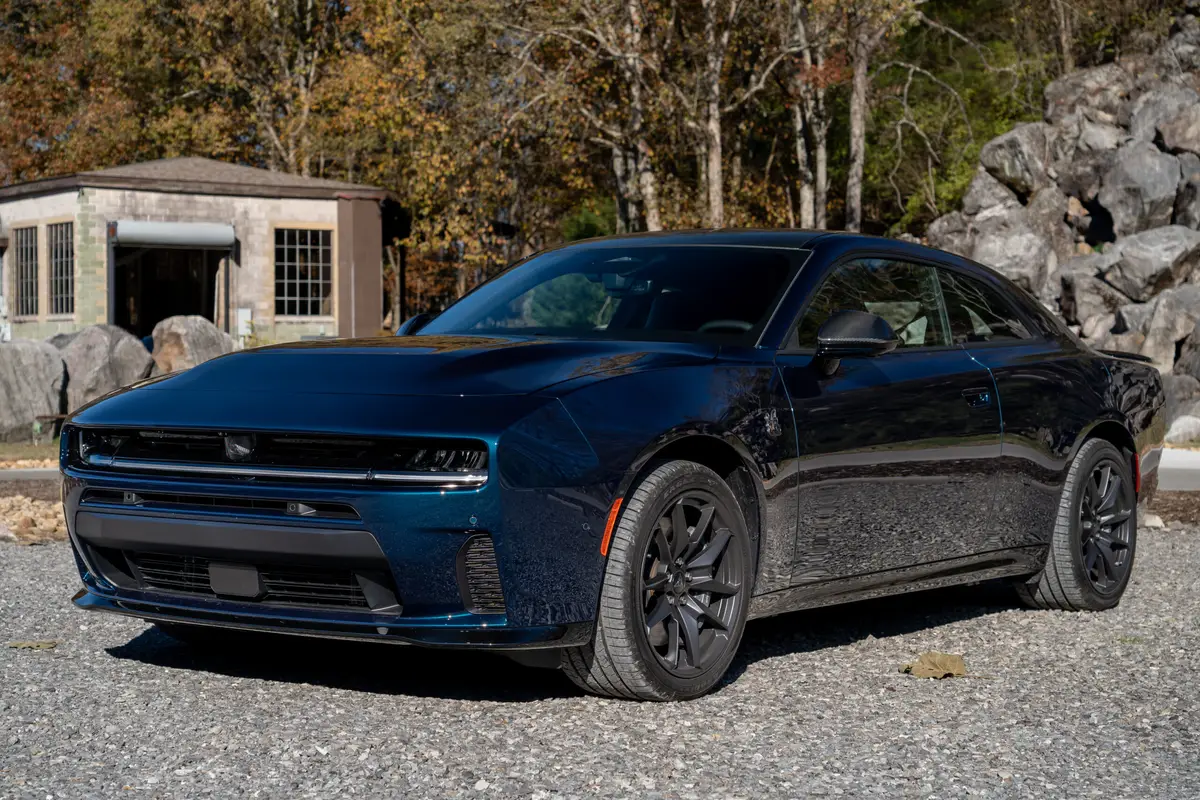2027 Chevrolet Bolt: We’ve Missed You, Smol Fren

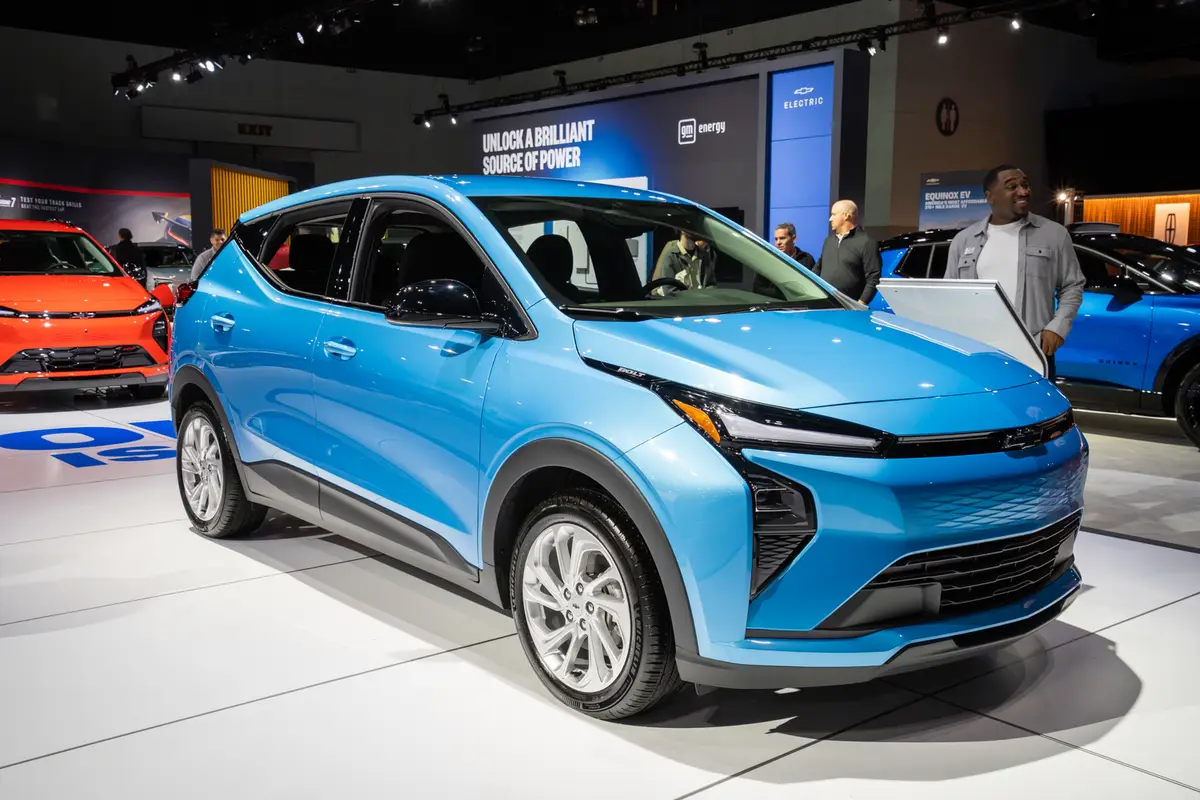
Key Points
- The revised 2027 Chevrolet Bolt returns with better range, an improved interior, faster charging and a budget-friendly price.
- However, a lack of one popular feature may keep it from greatness.
We all pondered the wisdom of GM killing its Chevrolet Bolt EV a couple of years ago given its popularity as a bargain-priced electric commuter that still sold in good numbers (for an electric vehicle), so we applauded the news that the automaker was bringing it back. And now we’ve had a chance to sit in the new and revised 2027 Chevrolet Bolt at the 2025 Los Angeles Auto Show, and it made us nostalgic for Chevy’s first true mass-market electric car. We didn’t realize how much we actually missed the Bolt until we had a seat in the new one.
Related: More 2025 Los Angeles Auto Show News
EVs This Small Are Rare
- Takeaway: The redesigned 2027 Bolt is based on the old Bolt EUV and provides adequate room in both rows.
The 2027 Bolt is a significantly revised version of the old Chevy Bolt EUV, the bigger, more passenger-friendly version of the old Bolt EV, and that’s a good start. It’ll still be one of the smallest EVs on the market when it arrives, and that’s kind of refreshing.
There’s adequate room in front or back for full-sized humans, with the EUV body style providing better rear legroom than you’ll find in the redesigned 2026 Nissan Leaf. It’s not as wide as the new Leaf, however, so it doesn’t have quite as much hip or shoulder room in front or back, and while the front seats have indeed been revised for better comfort, they’re still on the small side. Headroom is plentiful, though, thanks to the Bolt’s tall roof.

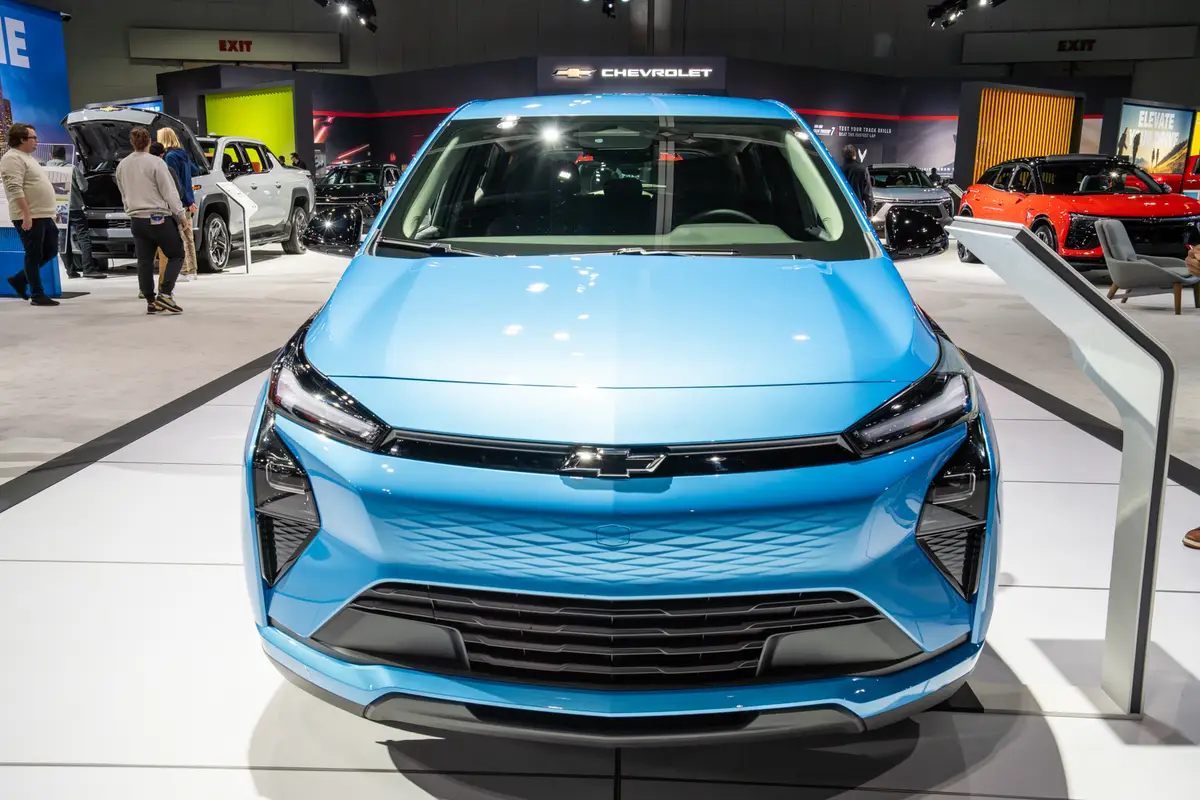

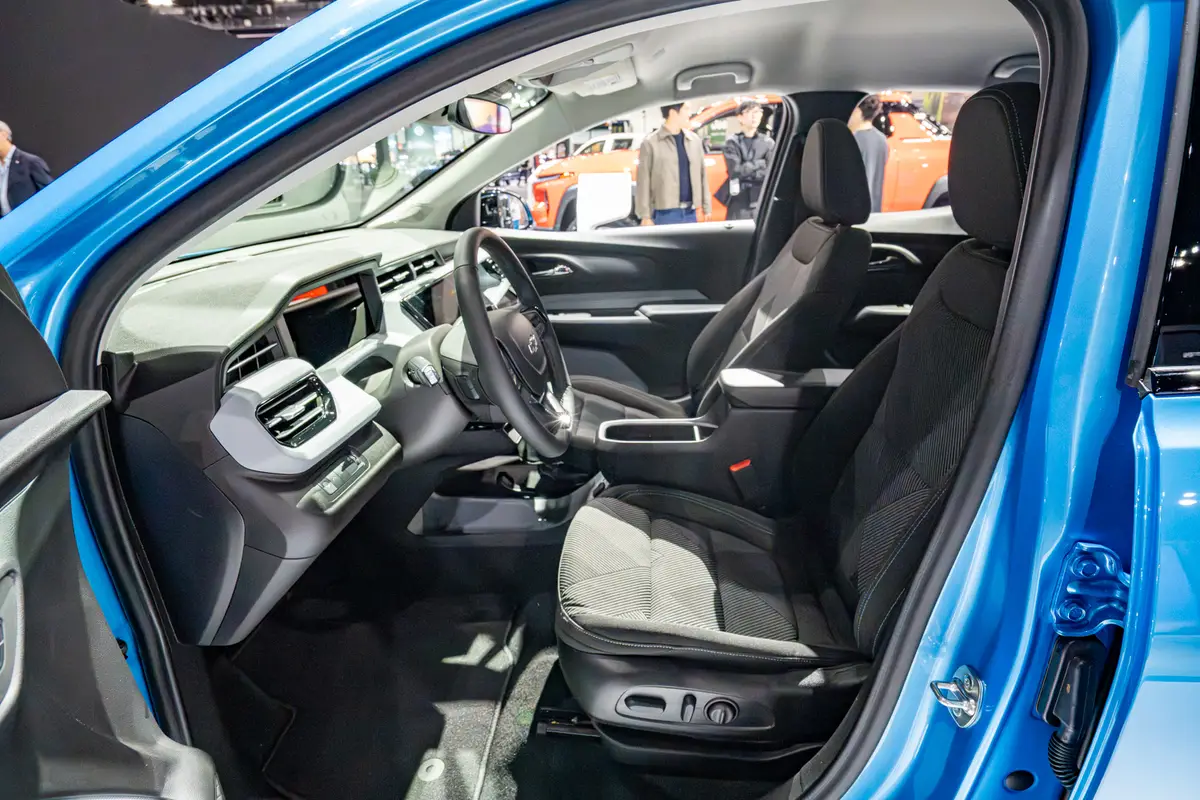
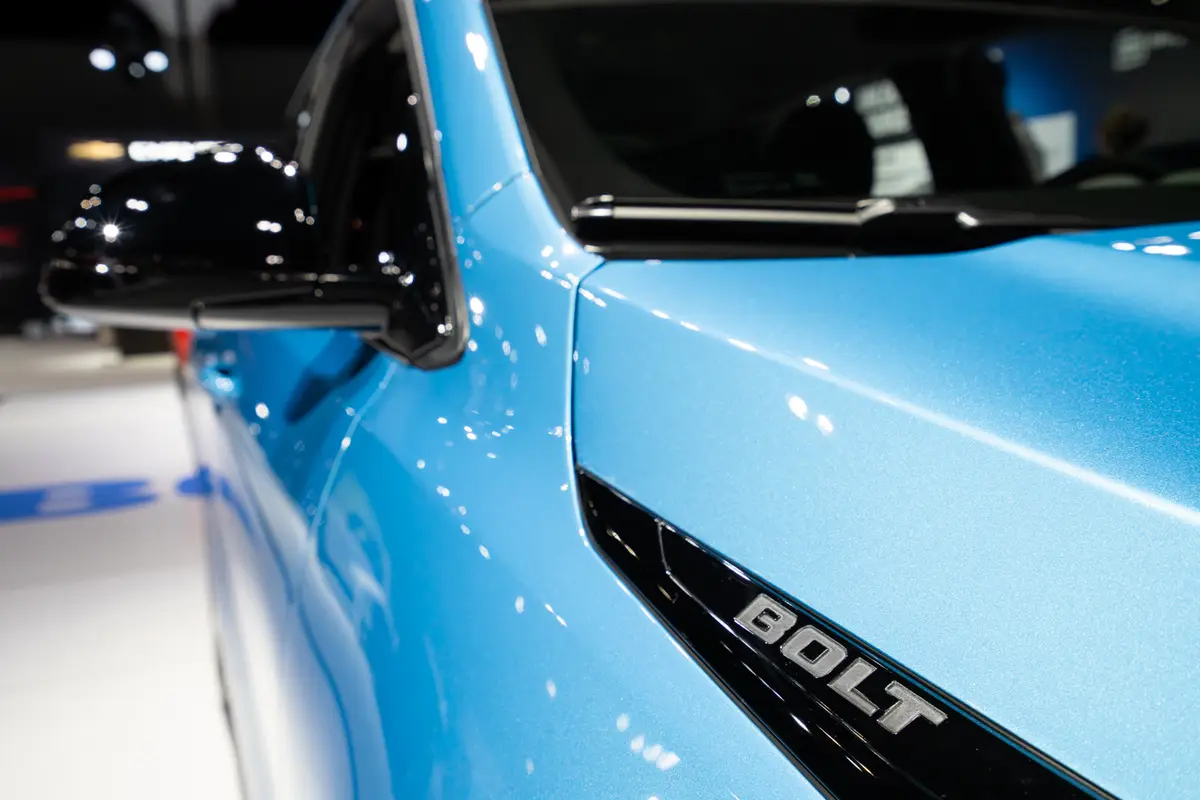
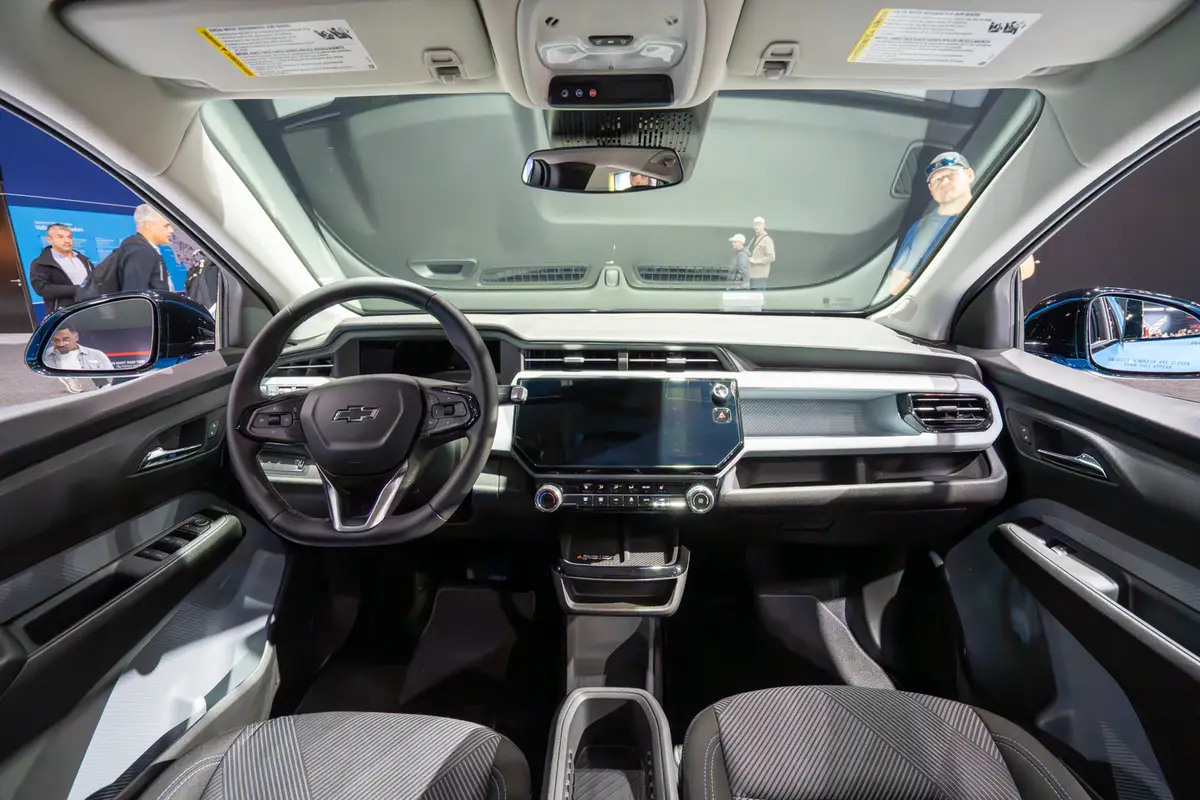
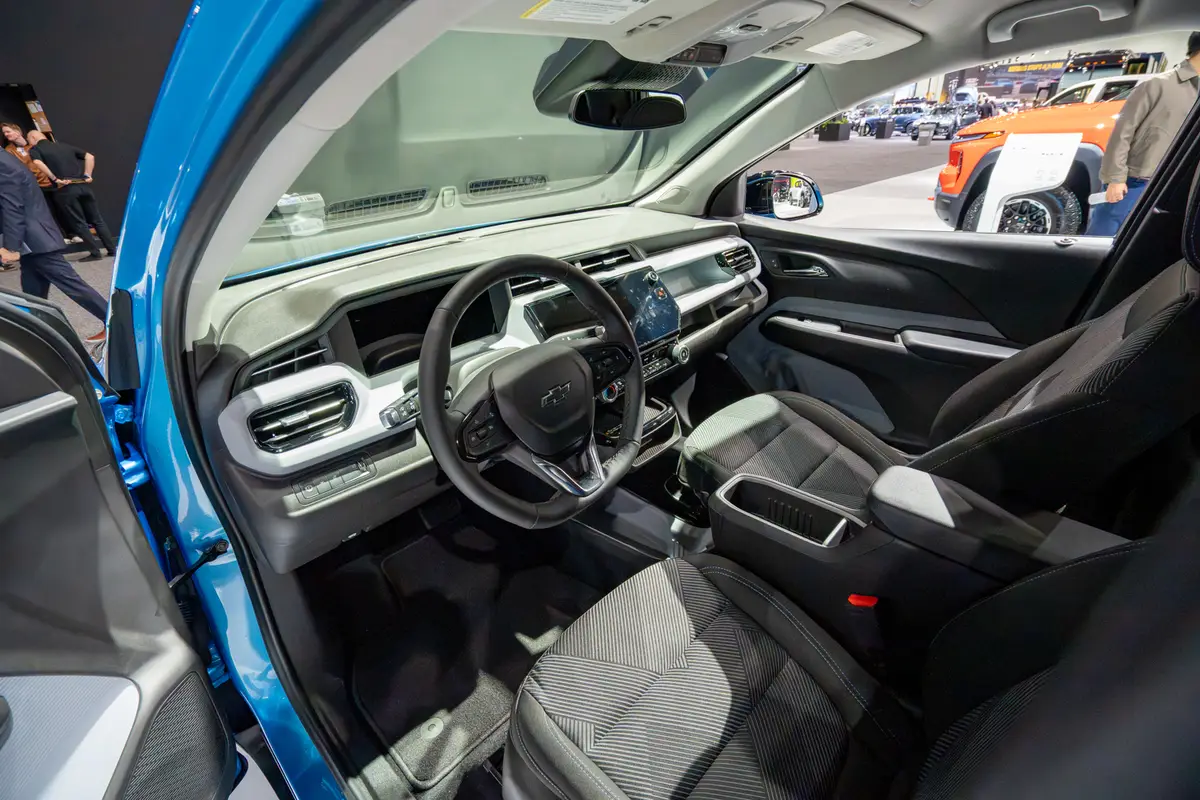


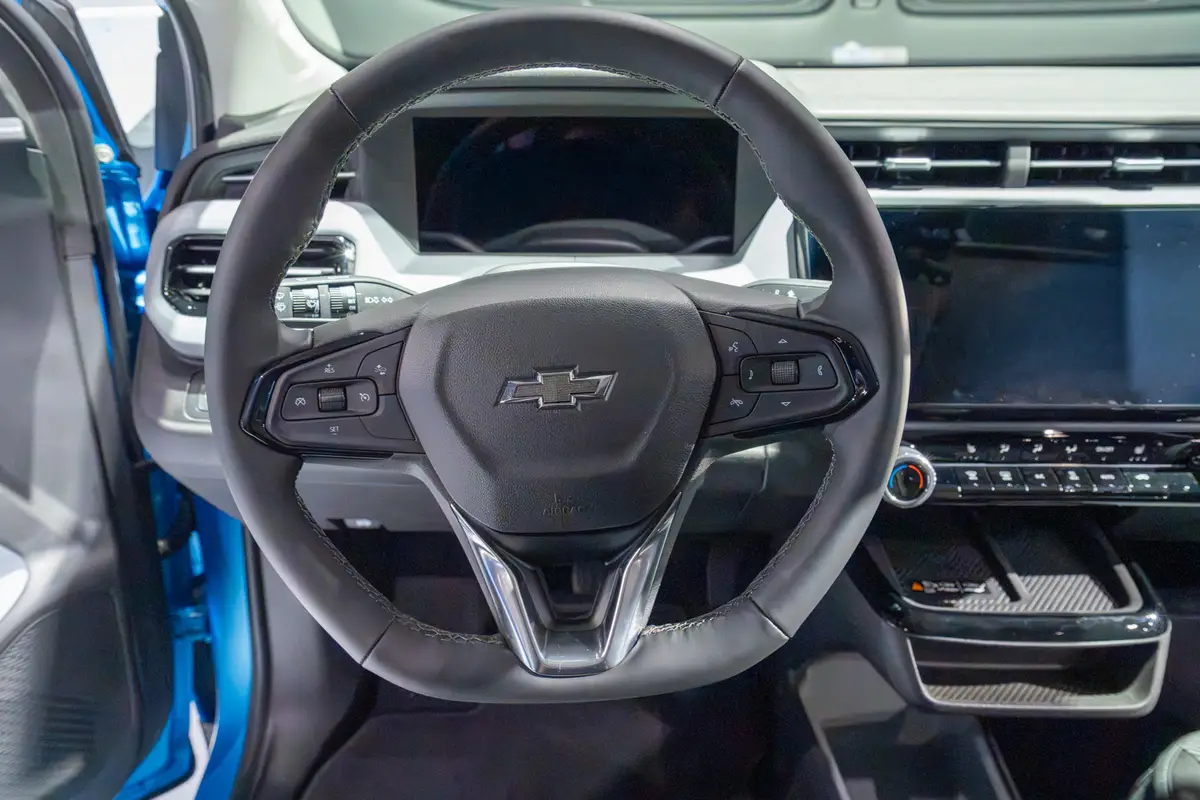
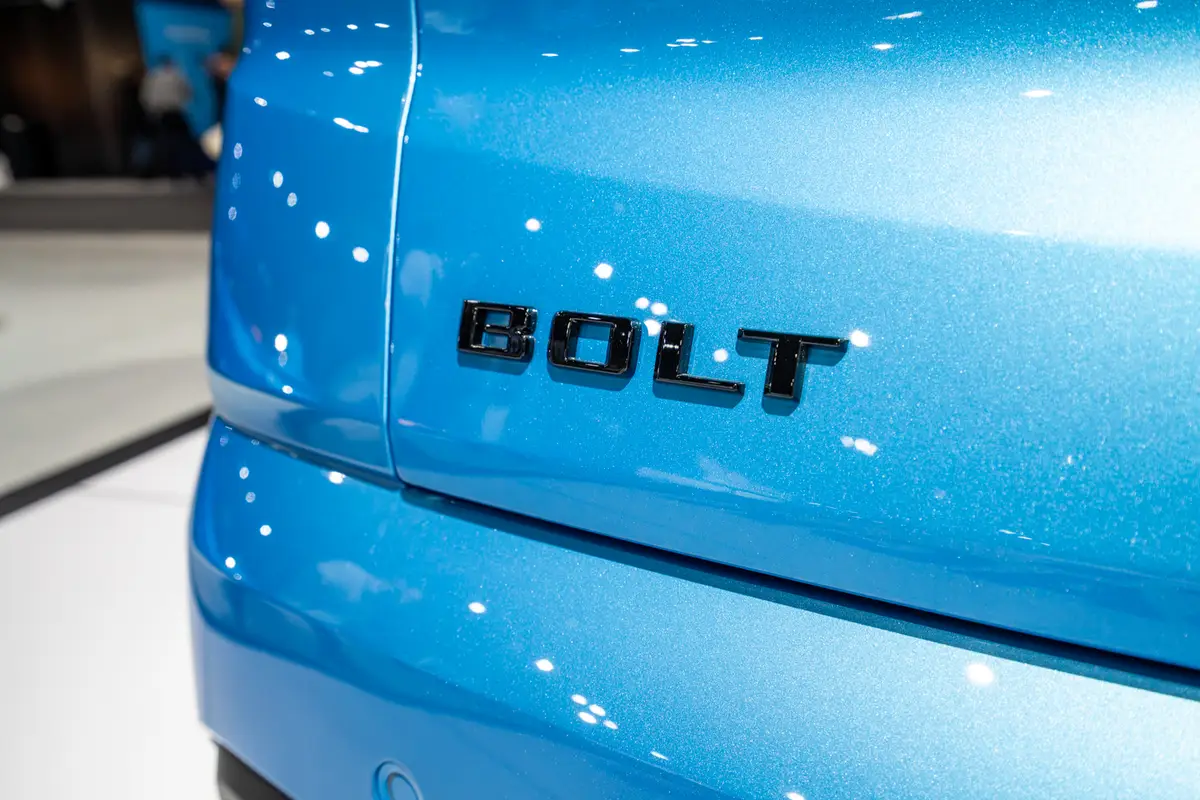
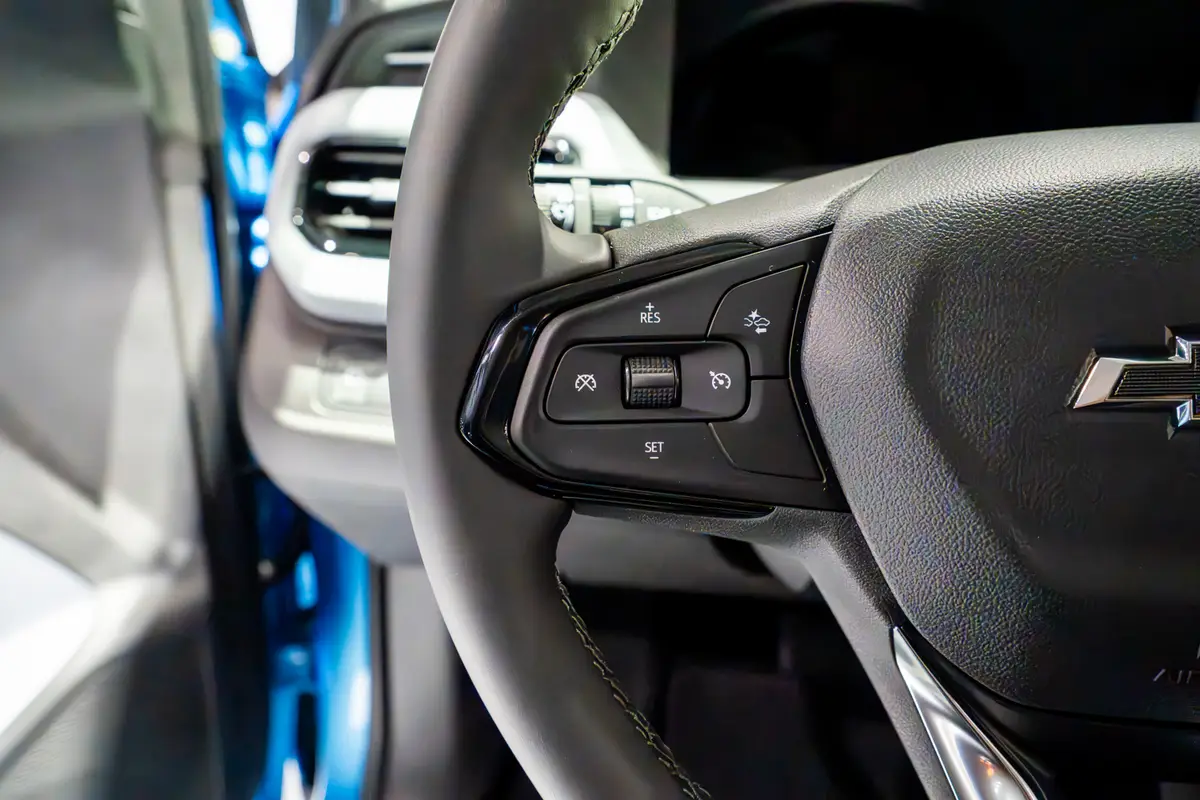

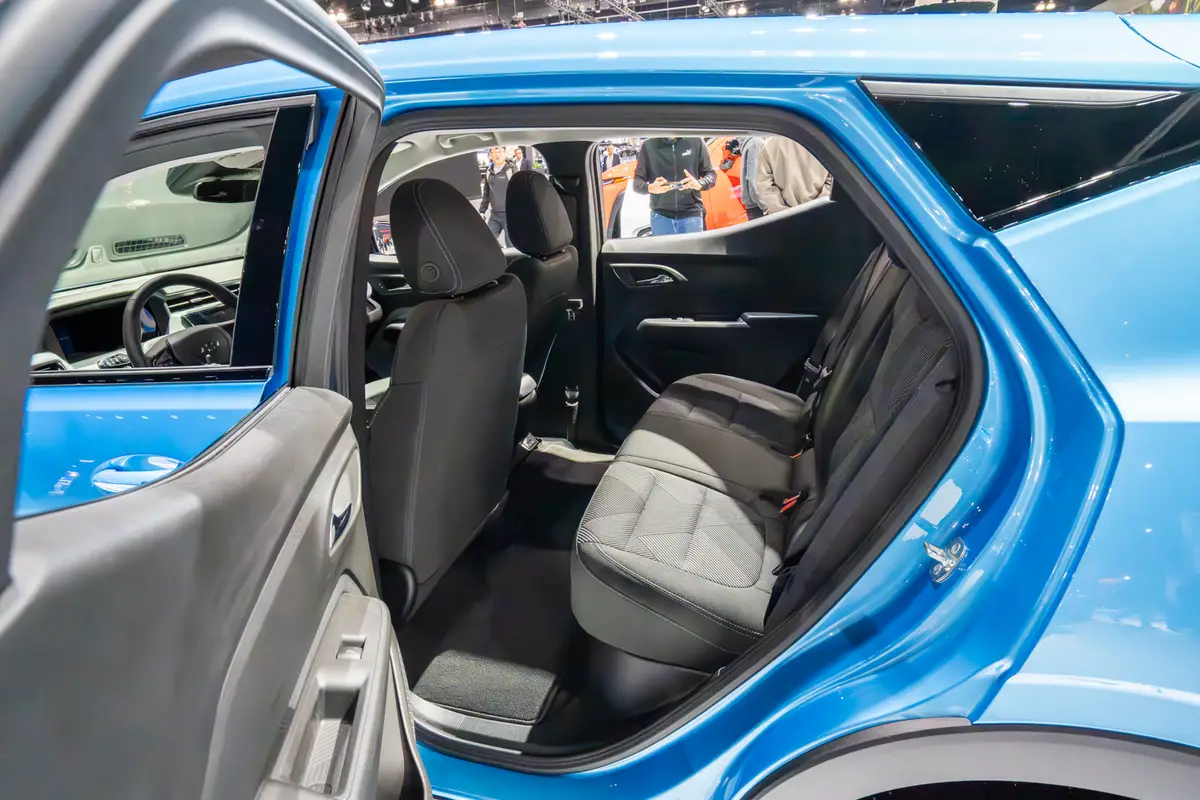
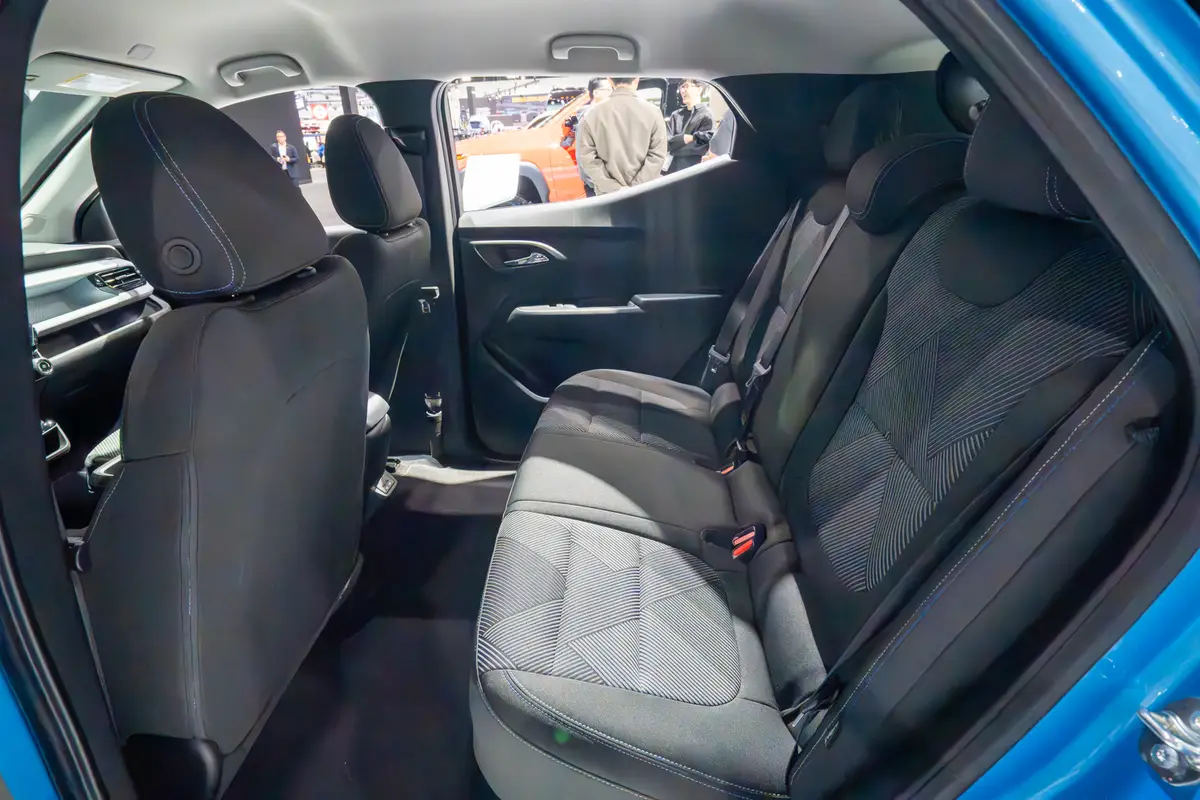
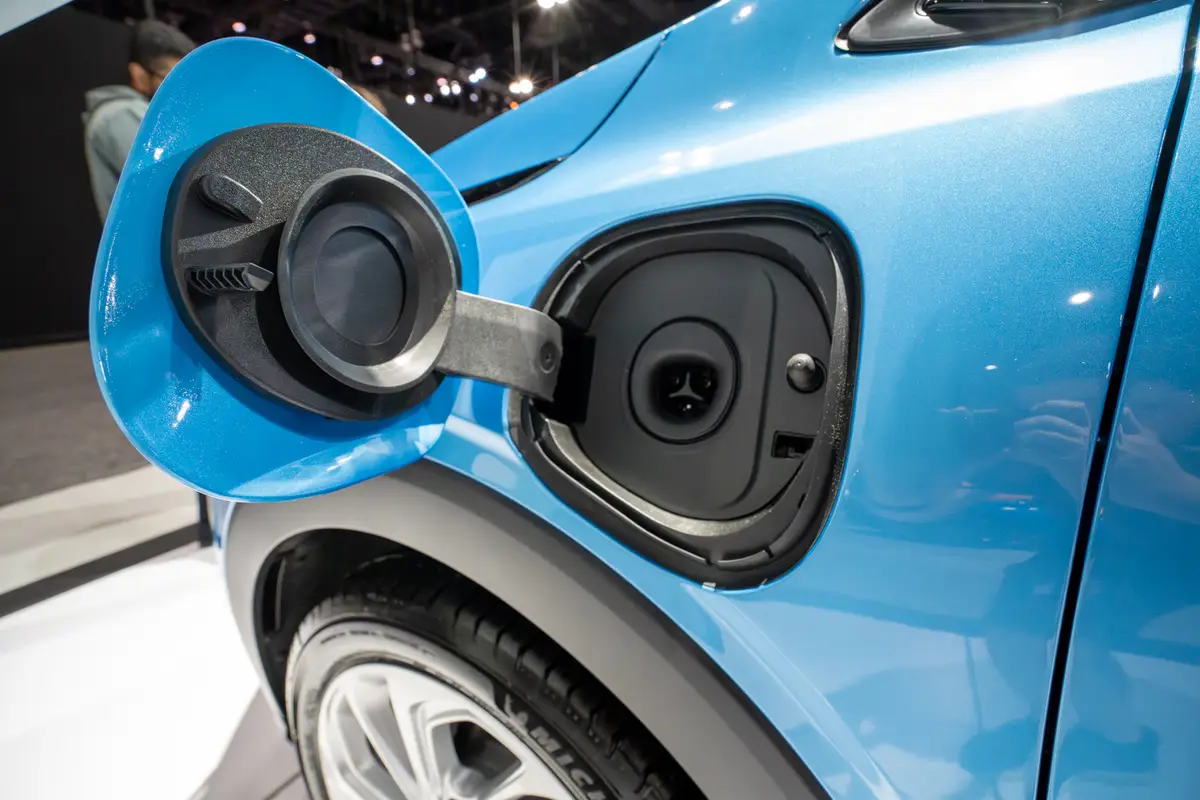
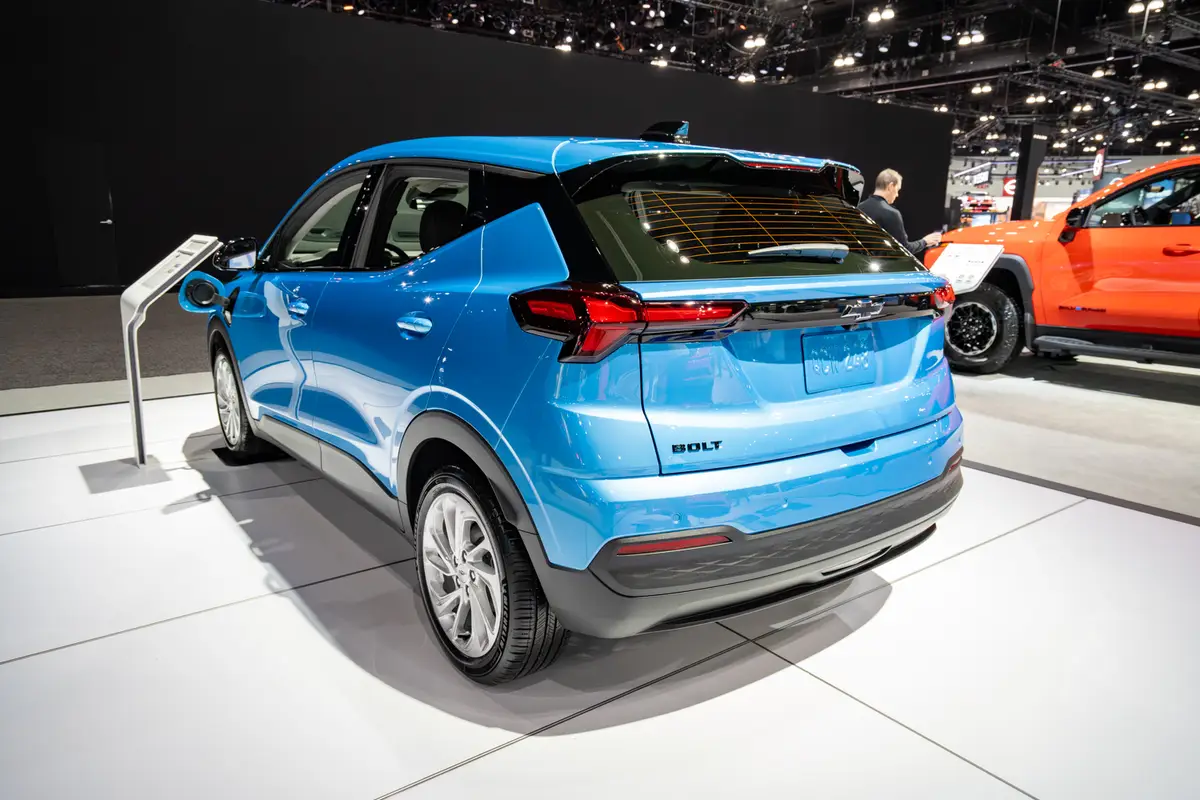
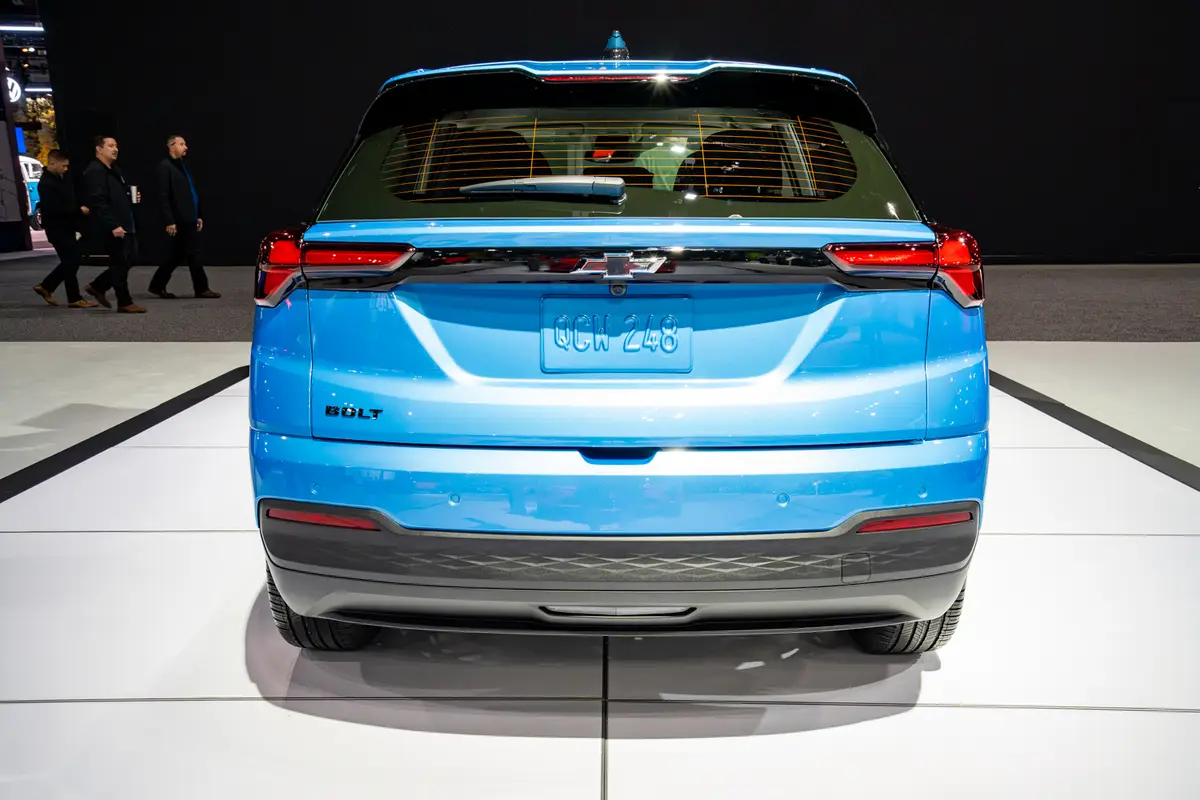


















Interior Upgrade … Mostly
- Takeaway: The 2027 Bolt gets updated interior materials, but it won’t get Apple CarPlay.
The new instrument panel and console are decidedly upgraded from the outgoing Bolt EV, with a more horizontal look and higher-quality materials. The whole vehicle actually feels more solid than the old one, with doors that close with a hefty thunk and interior panels that feel very well screwed together.
The new Google operating system handling the Bolt’s multimedia duties is clean, clear and easy to use — but we’re absolutely going to ding the new Chevy for not including Apple CarPlay with this new system. GM continues to insist upon leaving this highly popular feature out of its new EVs and has even announced that it’s going to stop offering it in gas-powered cars, too. This intentional omission continues to prevent a lot of new GM stuff from truly achieving greatness status in our opinion. The new Bolt suffers from this deficiency, as well, much to our disappointment.
Improved Electric Bits
- Takeaway: The new Bolt will charge faster and go farther than the previous model, and it will also be the most affordable EV on the market (at least for now).
Much of what has changed on the Bolt is stuff you can’t see — like the battery pack and powertrain. The new Bolt has decent range, with a predicted distance of 255 miles, and will charge faster than the old Bolt. But it’s still not quite the range or charging speed that the new Leaf can deliver, albeit for more money.
The price on the Bolt will make it appealing when it arrives, however, as it will be the cheapest new EV in America when it arrives (starting at $28,995 including destination for a late-arriving LT), at least until Nissan tells us the prices for the base variant of the Leaf sometime soon. But affordable EVs are still our jam, and we’re excited to see a new one returning to America’s highways.
Read More EV News Coverage on Cars.com:
- 2027 Chevrolet Bolt Vs. 2026 Nissan Leaf: Game On
- All-New 2026 Nissan Leaf Remains Cheapest EV Available, Starts at $31,485
- 2026 Nissan Leaf Review: Value Victory
- The EV Tax Credit Is Done; What Should an EV Shopper Do Now?
- What to Know Before Purchasing an Electric Vehicle: A Buying Guide
- Here Are the 11 Cheapest Electric Vehicles You Can Buy
Related Video:
Cars.com’s Editorial department is your source for automotive news and reviews. In line with Cars.com’s long-standing ethics policy, editors and reviewers don’t accept gifts or free trips from automakers. The Editorial department is independent of Cars.com’s advertising, sales and sponsored content departments.

Detroit Bureau Chief Aaron Bragman has had over 25 years of experience in the auto industry as a journalist, analyst, purchasing agent and program manager. Bragman grew up around his father’s classic Triumph sports cars (which were all sold and gone when he turned 16, much to his frustration) and comes from a Detroit family where cars put food on tables as much as smiles on faces. Today, he’s a member of the Automotive Press Association and the Midwest Automotive Media Association. His pronouns are he/him, but his adjectives are fat/sassy.
Featured stories
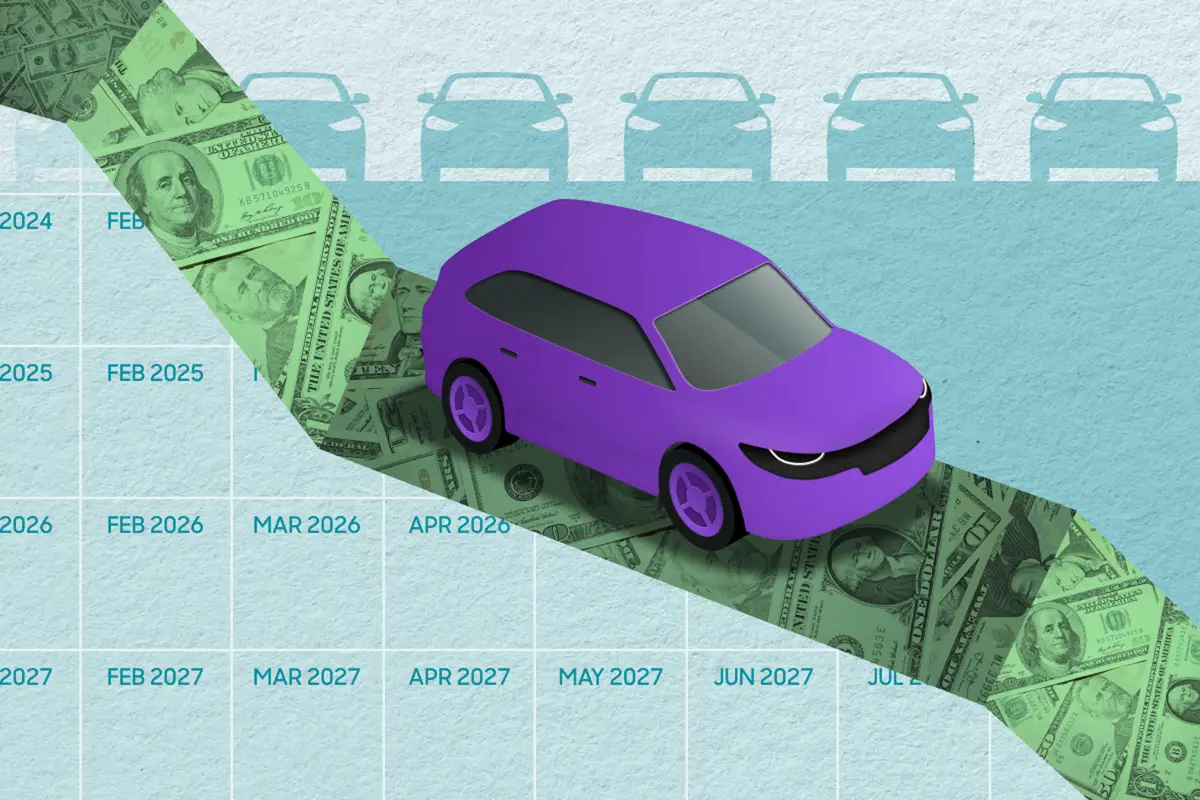
15-Year Car Loans Aren’t a Thing, But Americans Are Getting More Comfortable With Long Loan Terms
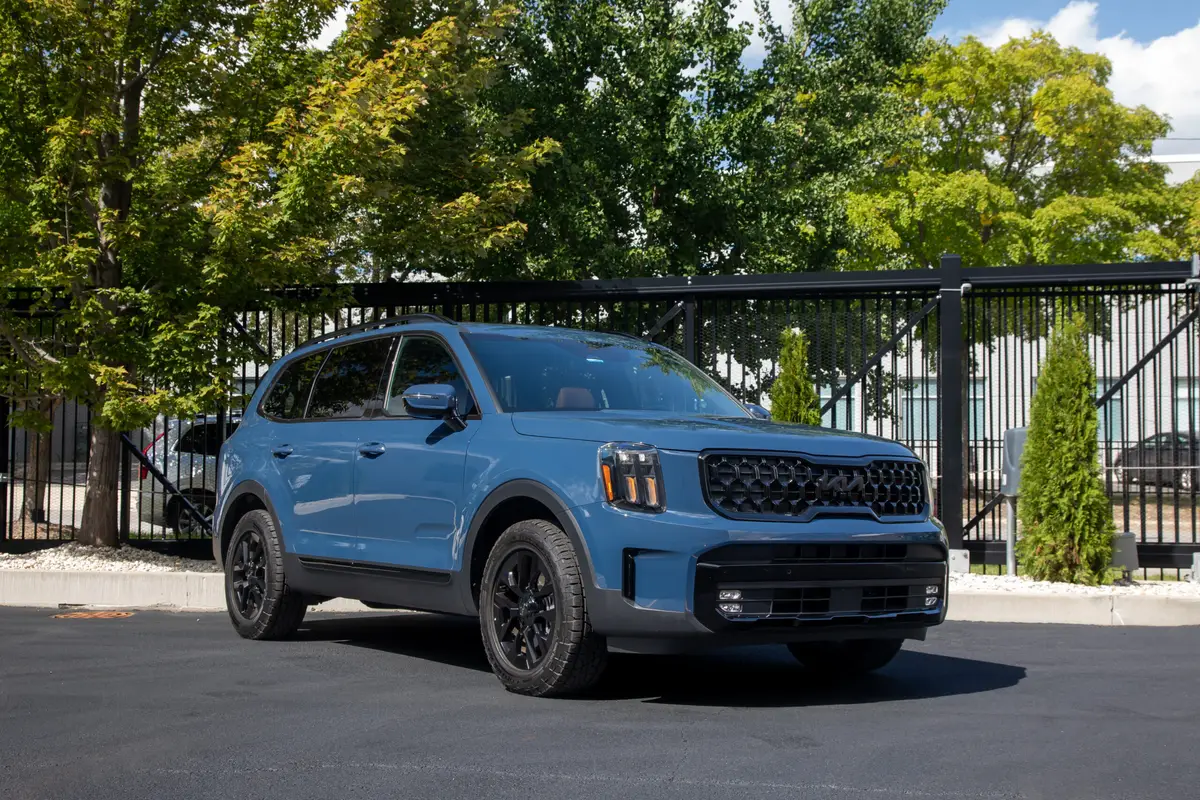
2025 Kia Telluride Review: Rougher Roads Ahead

